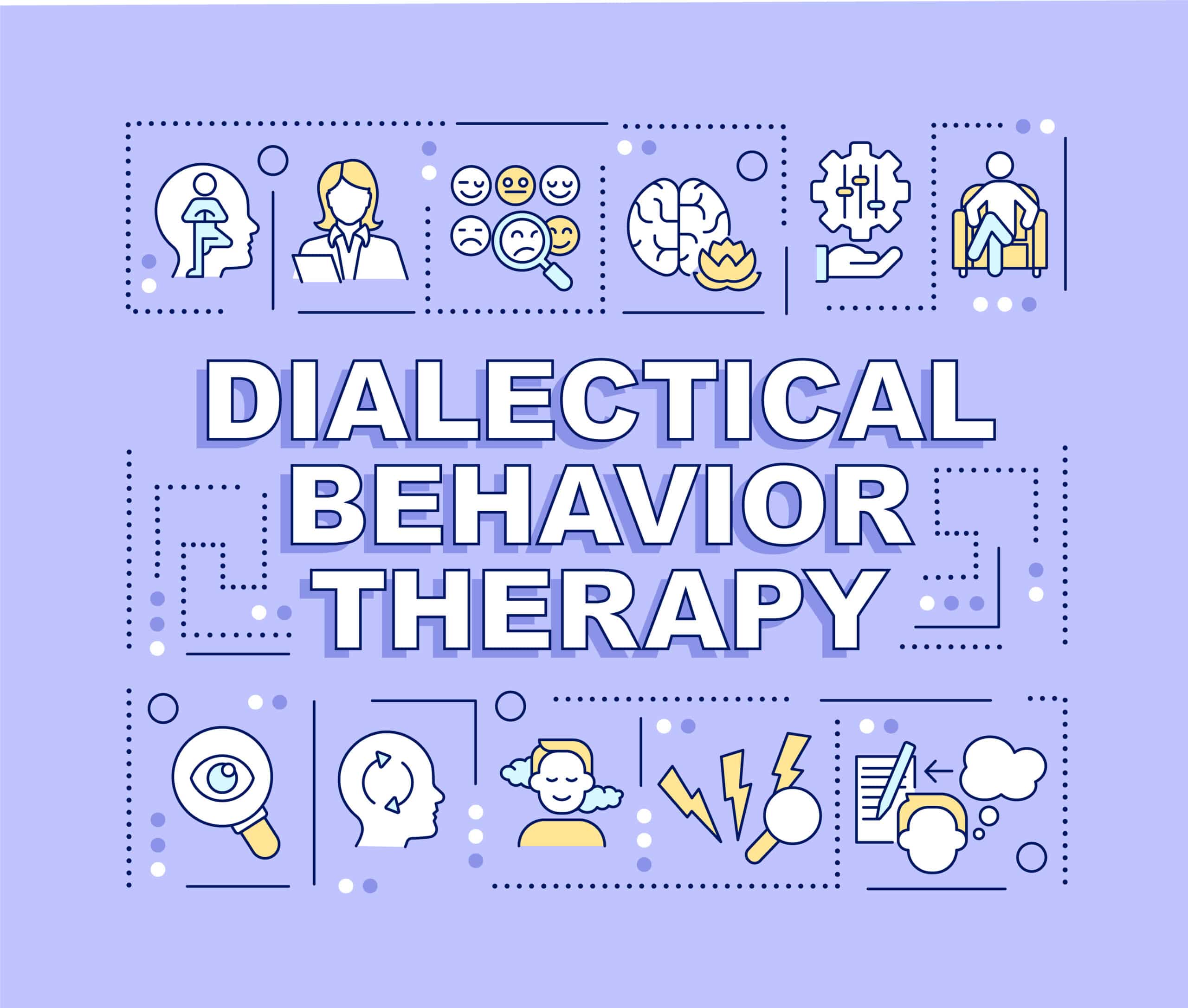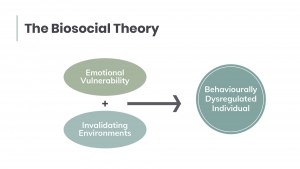Welcome Change with DBT London: Your Guide to Mental Health
Welcome Change with DBT London: Your Guide to Mental Health
Blog Article
Empowering Individuals With Reliable Dialectical Practices Therapy (DBT) Services: Structure Stronger Mental Wellness Foundations
In the realm of mental wellness and health, the value of equipping individuals through effective Dialectical Practices Treatment (DBT) services can not be overstated. By concentrating on the core principles of DBT, such as enhancing psychological regulation skills, improving social efficiency, developing distress resistance methods, and cultivating mindfulness techniques, individuals can get started on a journey in the direction of building more powerful mental health structures.
Understanding the Core Concepts of DBT


One core principle of DBT is validation. One more basic aspect is dialectics, which instructs people to check out scenarios from numerous perspectives and discover the synthesis between contradictory ideas or feelings.
Moreover, the idea of dialectical abstaining is main to DBT. This concept urges people to stay away from suicidal actions while also accepting themselves. By recognizing and incorporating these core principles, therapists can effectively implement DBT techniques and support people in their trip towards emotional policy and psychological well-being.
Enhancing Psychological Law Abilities
Creating effectiveness in taking care of feelings is a fundamental facet of cultivating emotional wellness and social effectiveness - DBT London. Enhancing emotional law abilities is a core part of Dialectical Behavior Therapy (DBT) that gears up individuals with the devices to browse intense emotions in a healthy and useful way. With DBT, people discover to recognize, comprehend, and regulate their emotions, leading to improved mental health outcomes
DBT stresses the value of mindfulness, which involves being existing in the minute without judgment. This practice permits people to observe their feelings without coming to be bewildered by them, improving their ability to react effectively as opposed to react impulsively. By growing mindfulness, people can create a higher sense of self-awareness and psychological control.
Moreover, DBT instructs practical abilities such as distress tolerance and feeling policy strategies to assist individuals handle challenging feelings. By learning these abilities, individuals can lower impulsive actions, improve decision-making, and strengthen their connections with others. Eventually, boosting emotional law abilities via DBT equips people to lead more meeting and balanced lives.

Improving Interpersonal Performance
Having developed a solid structure in emotional policy skills within the structure of Dialectical Behavior Therapy (DBT), the focus currently shifts towards enhancing social performance. Improving social efficiency is a vital part of DBT as it outfits people with the required skills to browse social communications, interact successfully, set boundaries, and construct much healthier connections.
In DBT, interpersonal effectiveness abilities are educated via components that concentrate on locations such as assertiveness, efficient communication, and interpersonal analytic. By finding out these skills, individuals can improve their capability to reveal their demands and wishes, preserve self-worth, and develop stronger links with others.
Exercising mindfulness is an integral component of improving social effectiveness within the DBT structure. Mindfulness allows people to be present in their communications, pay attention proactively, and react thoughtfully as opposed to browse around here react impulsively. By incorporating mindfulness into their lives, individuals can grow greater self-awareness and psychological guideline, which are vital for effective interpersonal communications.
Building Distress Tolerance Strategies
Exploring efficient approaches for handling psychological distress is vital for people seeking to improve their coping skills and resilience. Structure distress resistance techniques is a vital facet of Dialectical Practices Treatment (DBT) that encourages individuals to navigate challenging emotions without becoming overwhelmed.
Furthermore, mindfulness methods play a considerable duty in building distress tolerance. Mindfulness encourages individuals to remain existing in the minute without judgment, enabling weblink them to observe their thoughts and emotions without responding impulsively. This awareness allows individuals to tolerate distress much more properly and create a better feeling of control over their actions.
In addition to these strategies, creating a customized distress resistance strategy with the assistance of an experienced therapist can give people with a tailored strategy to taking care of psychological distress - DBT London. By integrating these techniques right into day-to-day live, people can enhance their mental wellness foundations and boost their general well-being

Cultivating Mindfulness Practices
To strengthen their distress resistance strategies further, individuals can concentrate on growing mindfulness techniques as a corresponding approach within the framework of Dialectical Behavior Treatment (DBT) Mindfulness, a vital part of DBT, involves taking notice of today minute without judgment. By cultivating mindfulness, people can enhance their understanding of ideas, emotions, and bodily experiences, advertising a deeper understanding of themselves and their experiences.
Mindfulness methods in DBT consist of strategies such as mindful breathing, body scans, and observing thoughts without accessory. These methods motivate people to develop a non-reactive stance towards their internal experiences, permitting them to react to difficult situations with greater clarity and calmness. By including mindfulness into daily regimens, people can discover to regulate their feelings a lot more efficiently, decrease impulsive actions, and cultivate a feeling of inner tranquility.
Via cultivating mindfulness practices, people undertaking DBT can develop a strong structure for handling stress, boosting connections, and enhancing total well-being. By integrating mindfulness into their therapeutic trip, individuals can develop useful skills that empower them to navigate life's difficulties with durability and self-awareness.
Verdict
In conclusion, effective Dialectical Practices Therapy (DBT) solutions play a crucial duty in equipping people to develop more powerful mental health and wellness foundations. By understanding the core concepts of DBT, improving psychological guideline skills, enhancing social efficiency, building distress resistance methods, and growing mindfulness methods, individuals are outfitted with the needed tools to browse their emotions, relationships, and obstacles in a more durable and flexible manner. DBT solutions offer a comprehensive approach to promoting psychological my sources well-being and equipping people to lead fulfilling lives.
By focusing on the core concepts of DBT, such as boosting emotional regulation skills, boosting interpersonal efficiency, developing distress resistance techniques, and cultivating mindfulness methods, people can embark on a journey in the direction of building stronger psychological wellness structures. Enhancing emotional policy skills is a core component of Dialectical Behavior Treatment (DBT) that outfits individuals with the tools to browse intense emotions in a constructive and healthy and balanced way.In addition, DBT instructs functional skills such as distress tolerance and feeling policy techniques to assist individuals handle challenging feelings.To strengthen their distress resistance methods better, individuals can focus on cultivating mindfulness practices as a complementary method within the structure of Dialectical Behaviour Therapy (DBT) By recognizing the core principles of DBT, enhancing emotional guideline abilities, improving social effectiveness, building distress tolerance techniques, and cultivating mindfulness methods, people are equipped with the necessary devices to browse their feelings, connections, and challenges in an extra resilient and adaptive way.
Report this page